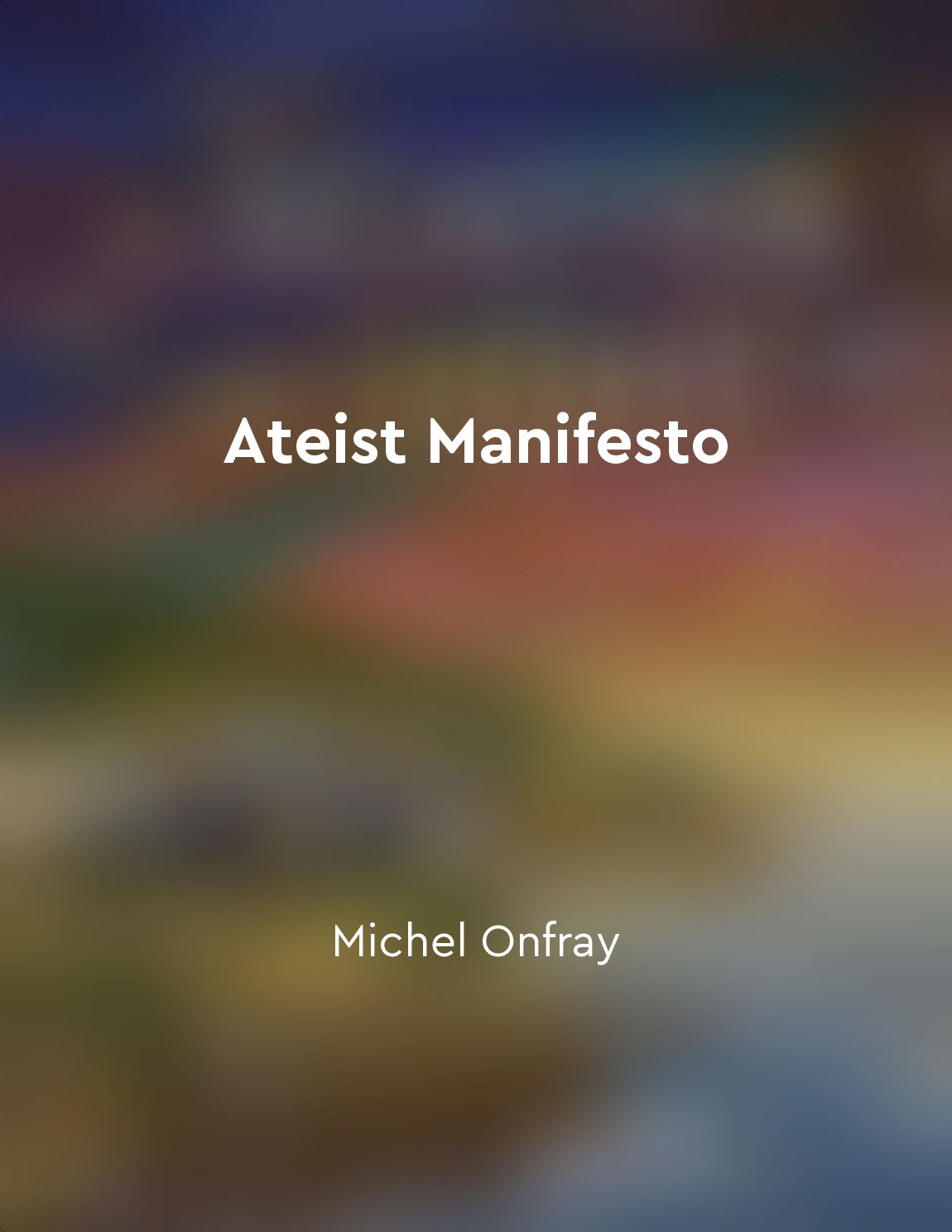The concept of a personal God is nonsensical from "summary" of The God Delusion: by Richard Dawkins | Key Takeaways, Analysis & Review by Instaread
Richard Dawkins argues that the concept of a personal God is nonsensical because it raises more questions than it answers. The idea of a God who is interested in individual human lives and who listens to prayers seems illogical when considering the vastness of the universe and the sheer number of people on Earth. If God is truly omniscient and omnipotent, how can he possibly keep track of every single person's thoughts, actions, and prayers? It simply does not add up. Moreover, the concept of a personal God implies a level of favoritism that is both unfair and arbitrary. If God intervenes in some people's lives but not others, how can we explain the suffering and injustices that occur in the world? Why would a loving and benevolent God choose to help some individuals while ignoring the plight of others? The idea of a personal God who plays favorites contradicts the notion of a just and compassionate deity. Additionally, the concept of a personal God is often used to justify harmful and discriminatory beliefs and behaviors. Throughout history, people have invoked their God's supposed preferences to oppress and marginalize others, leading to conflict, violence, and division. The belief in a personal God can be a dangerous and divisive force, allowing individuals to justify their own prejudices and biases in the name of religion.- Richard Dawkins argues that the concept of a personal God is nonsensical because it is riddled with logical inconsistencies, unfair implications, and harmful consequences. The idea of a God who is intimately involved in human affairs raises more questions than it answers, and ultimately serves to perpetuate harmful beliefs and behaviors. Instead of turning to a personal deity for guidance and support, Dawkins encourages people to look to reason, science, and compassion for answers to life's most pressing questions.
Similar Posts

Enlightenment comes from within, not from gods
The idea that enlightenment can only be found within oneself, and not through external gods, is a central theme in the 'Ateist ...

Philosophical exploration is necessary for understanding the complexities of morality
Philosophical exploration is crucial for delving into the intricate web of morality that surrounds us. It is through this deep ...
Consciousness arises from complex neuronal connections
The human brain is a complex organ made up of billions of neurons that communicate with each other through intricate networks o...
Ancient people saw divinity in all aspects of life
In ancient times, people did not draw a sharp distinction between the sacred and the profane. The world was seen as suffused wi...

Science and religion are incompatible ways of understanding the world
The idea that science and religion are incompatible ways of understanding the world is a central theme in 'The God Delusion' by...

Humanism is the true path to enlightenment
Humanism, as a philosophy and way of life, offers a clear and coherent path towards enlightenment. It emphasizes the importance...

